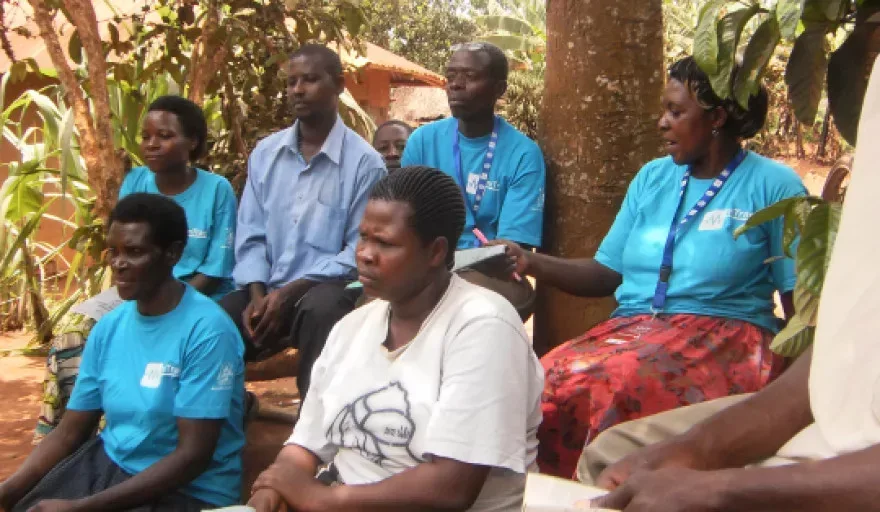Crucial health services in a rural Ugandan district are set to be improved as part of a major project getting underway at Nottingham Trent University. Experts in public health at the university have embarked on an international health partnership which aims to strengthen the community health worker programme in Uganda’s Wakiso District.
Community health workers in the area make a significant contribution to improving people’s health through effective health promotion and primary care work. They are often the first point of contact for people living in rural areas.
But analysis has found a number of challenges linked to their work. These include the absence of clarity about their roles and responsibilities, difficulties in providing the right level of training, supervision and monitoring, poor transport facilities and a lack of basic resources.
Working with academics in the School of Public Health at Makerere University in Uganda, the Nottingham researchers are looking to strengthen the Ministry of Health programme for community health workers, focused on improving their capacity to provide healthcare in the communities they serve.
“The role of community health workers, and the need for universal health coverage in many parts of the world, is critical today,” said Dr Linda Gibson, a senior lecturer in public health in Nottingham Trent University’s School of Social Sciences.
She said: “A comprehensive ‘bottom up’ approach, where health is delivered within communities, is now recognised as crucial by all the international health agencies. The absence of this approach is tragically demonstrated in those countries currently affected by Ebola, for example.
“We are very excited to be playing a key role in helping to deliver health care which is so needed in this part of the world. The hope is that our project to strengthen the community health worker training programme will eventually be rolled out nationally.”
The revamped training packages will develop the community health workers’ skills and knowledge and strengthen protocols and systems to improve supervision and monitoring. It will also identify and implement factors which can further motivate health workers.
The three year £166,000 project – which builds on previous partnership activities between Nottingham Trent University and Makerere University – also involves partners C3 Collaborating for Health and the Ugandan Ministry of Health.
David Musoke, a lecturer at Makerere University School of Public Health, said: “We are delighted to work with Nottingham Trent University on this important project to support the work of community health workers in Uganda. The project will not only strengthen their capacity to perform their roles through enhanced knowledge and skills but also benefit the communities in which they work.”
The work is being funded by the UK Department for International Development’s Health Partnership Scheme, and managed by the Tropical Health and Education Trust.






























